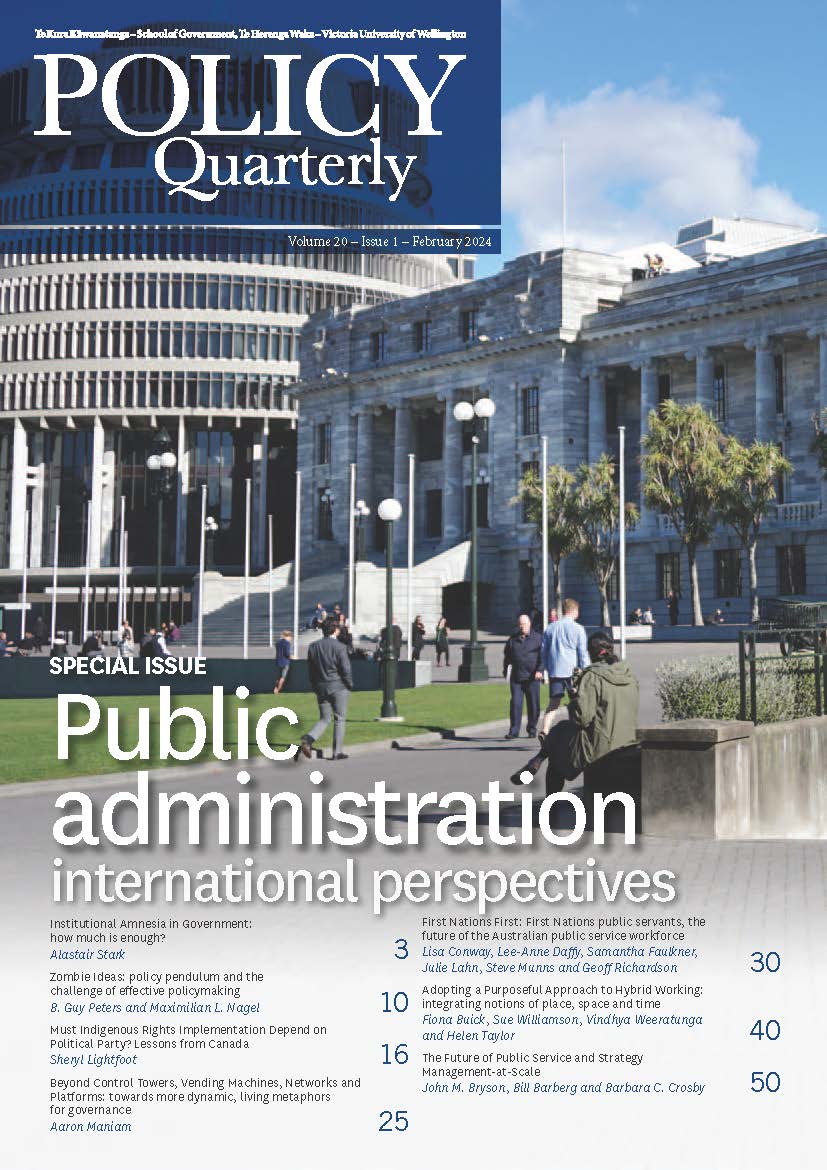Must Indigenous Rights Implementation Depend on Political Party?
Lessons from Canada
DOI:
https://doi.org/10.26686/pq.v20i1.9048Keywords:
Indigenous rights, Canada, Truth and Reconciliation Commission, United Nations, Free, Prior and informed consentAbstract
Canada and New Zealand were two of only four countries which voted against the United Nations Declaration on the Rights of Indigenous Peoples in 2007, before eventually moving to support. Since then, this declaration has influenced Canadian politics and practices, particularly the Truth and Reconciliation Commission’s 2015 ‘calls to action’, legislation, and subsequent action plans on both the federal and provincial levels. Different political parties’ priorities affect the implementation of indigenous rights policies. Nonetheless, Canada demonstrates the importance of normative change, outside of legislation or formal policy change. Norms of co-development, co-design and co-drafting create opportunities for indigenous peoples to have a say in policies that affect them.
Downloads
Downloads
Published
Issue
Section
License
Permission: In the interest of promoting debate and wider dissemination, the IGPS encourages use of all or part of the articles appearing in PQ, where there is no element of commercial gain. Appropriate acknowledgement of both author and source should be made in all cases. Please direct requests for permission to reprint articles from this publication to Policy-Quarterly@vuw.ac.nz.



